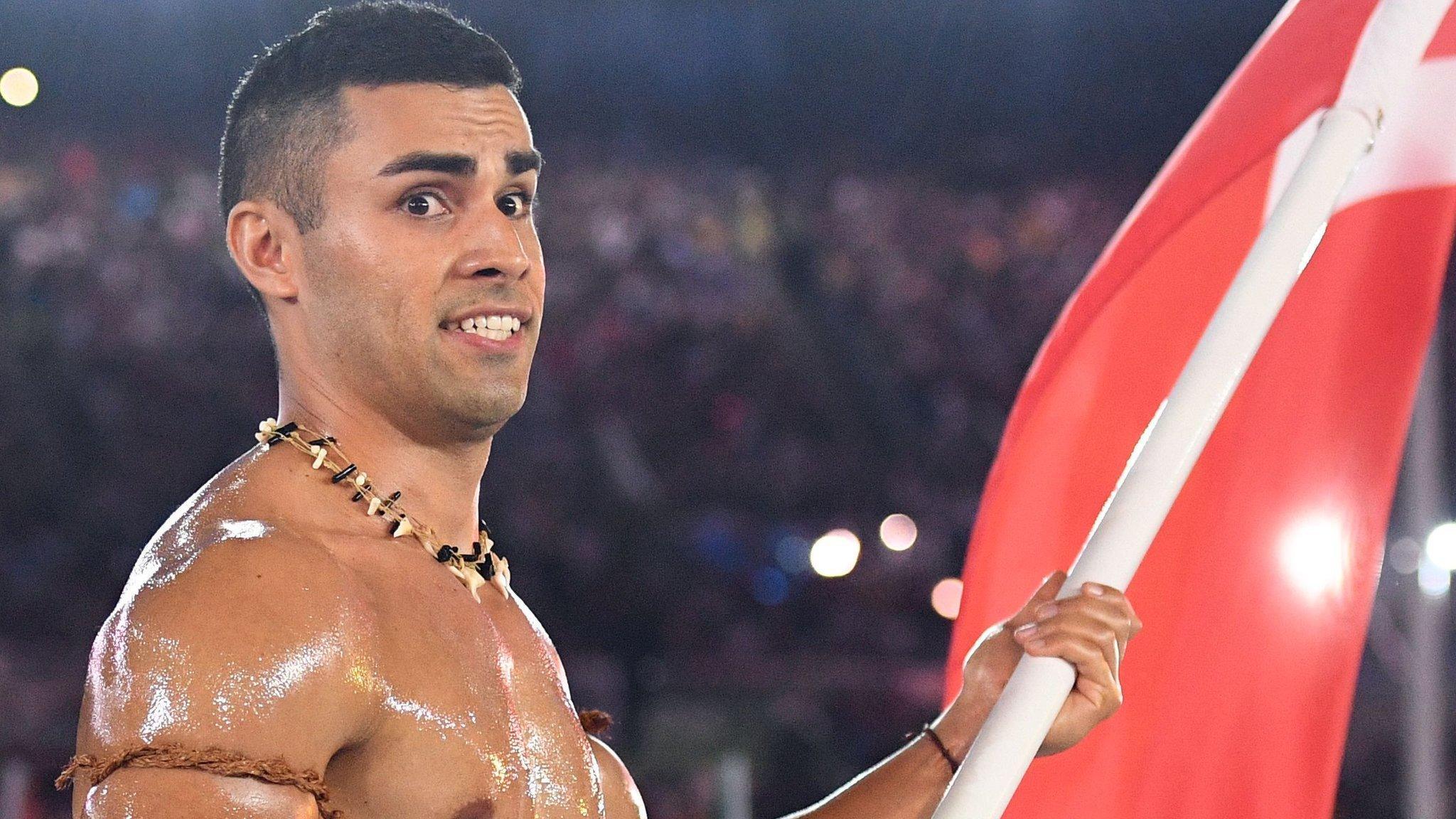Winter Olympics: Eight reasons you'll end up watching
- Published
Why watch the Winter Olympics - surely just a collection of incomprehensible sports events that Britain - a country regularly destabilised by a few centimetres of snow - is no good at?
Or is it an adrenaline-filled ride into the unknown, where you just don't know what you'll be entranced by next? Here are eight things we predict will capture the imagination at Pyeongchang 2018.
1. Everyone ends up getting hooked on curling
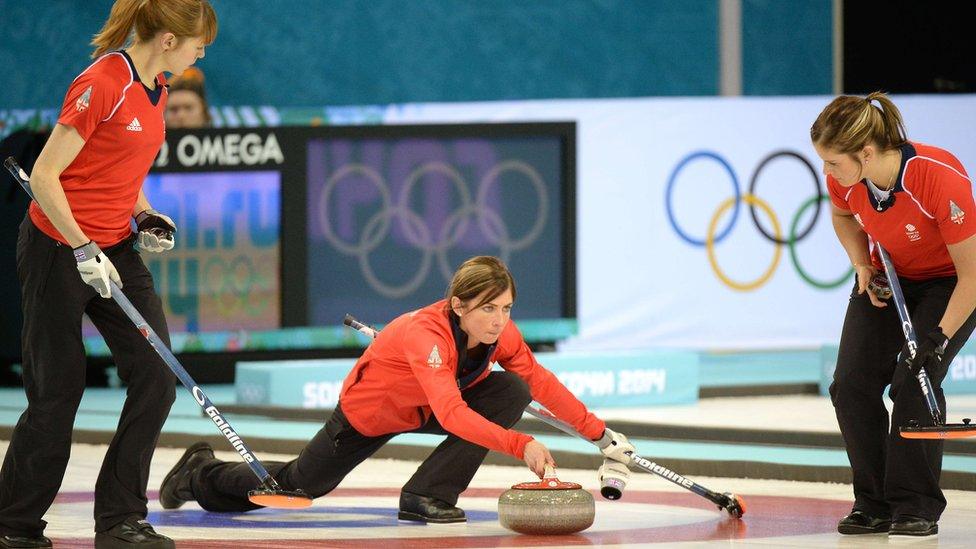
Great Britain's Eve Muirhead throws a stone in the Sochi Winter Olympics 2014
If you were to invent a sport from scratch, you would probably end up suggesting monkey tennis before you'd get to the slightly strange hotpotch that is curling.
Experts may talk of curling stones, the skip, the house and the brushes - but ask any non-aficionado and they'll describe it as bowls on ice with added broomstick action. A lot of broomstick action.
Few would mark this combination out as a surefire TV winner but, every four years, it becomes one of the most mesmerising things you can watch on a TV screen.
It's now 16 years since more than six million viewers stayed on watching past midnight as British curlers Rhona Martin, Debbie Knox, Janice Rankin and Fiona MacDonald secured the gold medal in Salt Lake City.
If nothing else, use it as inspiration to get on with your spring clean. After taking in a exciting curling showdown, you'll find that you'll be wielding your brush, broom or mop around your floors with unexpected vigour.
2. The opening ceremony

South Korean artist Psy gave K-Pop an international reach
This year's games are being held in South Korea, and with it there is likely to be a pyrotechnic extravaganza full of bubblegum K-Pop.
For those not au fait with this particular genre of music (ie anyone over 25), think R&B meets Vengaboys. It's tacky, highly stylised, and infectiously brilliant.
Any aficionado of the Eurovision Song Contest will enjoy the choreographed moves and caffeinated energy of K-Pop.
The details of who will be performing have been shrouded in secrecy but everyone is hoping the Mr Gangnam Style himself, Psy, will make an appearance.
3. The return of the bare-chested Tongan
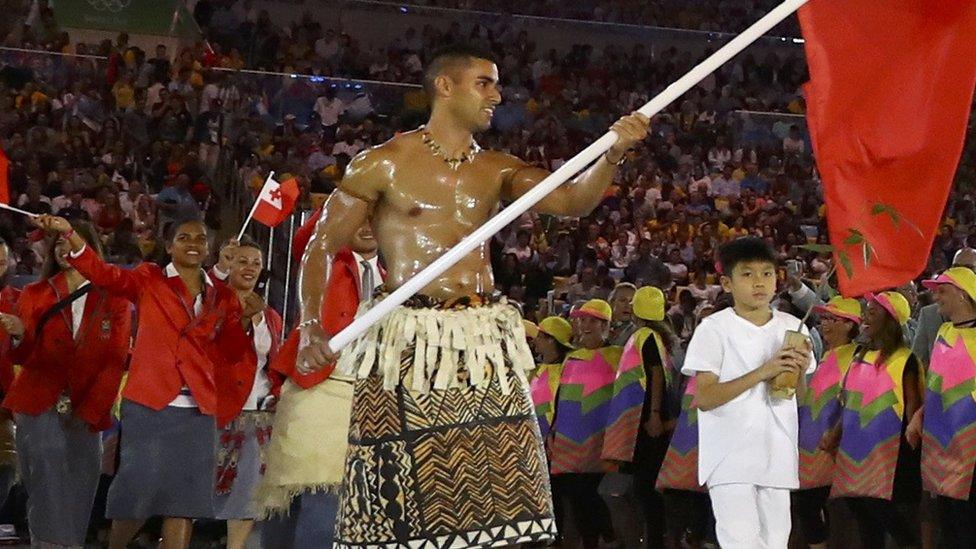
Pita Taufatofua at the Rio Olympics 2016
Back in the heat of the Maracana stadium at the opening of the Rio Olympics, Tongan flag bearer Pita Taufatofua raised temperatures even more with his choice of attire.
The Taekwondo athlete entered the arena bare-chested and visibly oiled up in a rather minimalist ceremonial outfit.
And the good news for those who immediately adopted him as a cult hero is that he is back for the Winter Olympics as he's switched the dojang for the ski slopes.
The 34-year-old will be competing in cross-country skiing, and is the first person from Tonga to qualify for the Winter Olympics.
Don't expect big things on the slopes - Taufatofua only saw snow for the first time a couple of years ago.
But do expect big things at the opening ceremony. Temperatures will be a lot lower, meaning the same outfit is unlikely, but this is a man who knows how to make an entrance.
4. The biathlon will leave you shaken and stirred
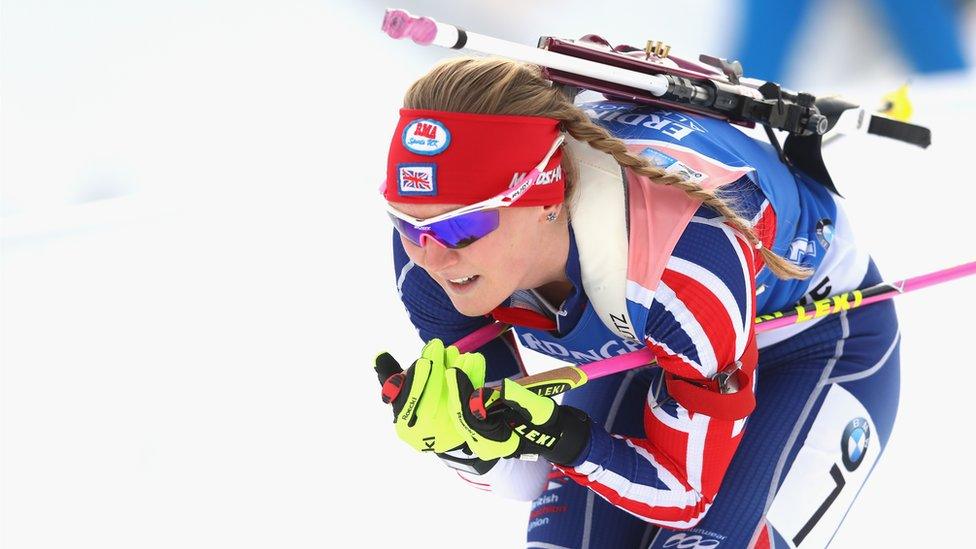
Team GB's Amanda Lightfoot cross-country skiing, with a gun attached to her back
The biathlon combines two of the most bourgeois and middle-class pursuits known to man: skiing and shooting.
Generally in life, opportunities to show off your aptitude at cross-country ski-ing and shooting a rifle at the same time are limited, unless you're trying to hunt down a Yukon moose in the dead of winter - or on a mission for Her Majesty's Secret Service tracking a tricky Russian villain.
Sadly, James Bond has failed to make the British team, possibly because jumping off the edge of a cliff and deploying a Union Jack parachute contravened Olympic regulations.
But Amanda Lightfoot will be competing for Team GB in the women's 7.5km sprint, surely hoping to avoid any kind of Ski-fall.
5. The scare factory that is the skeleton
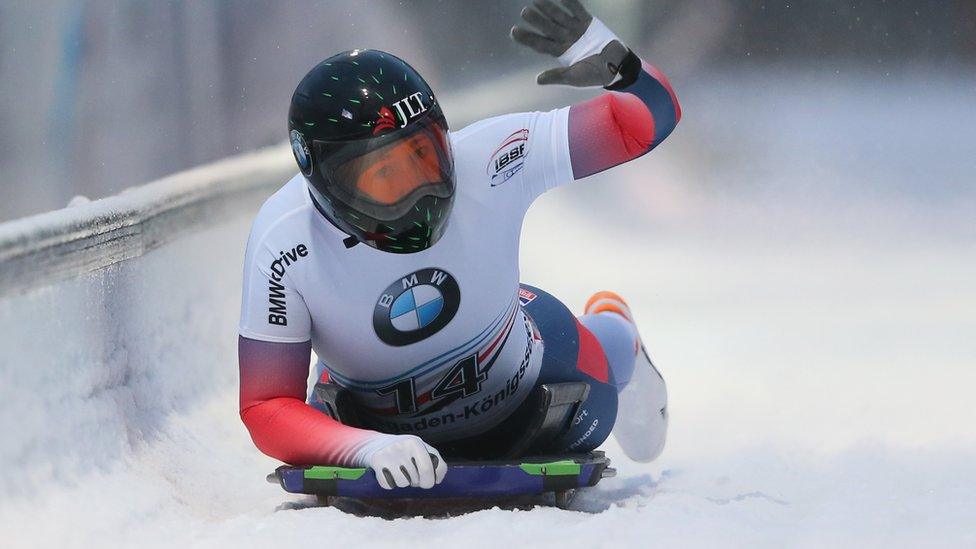
Lizzy Yarnold competing at the BMW IBSF World Cup Skeleton in Koenigssee, Germany
Sometimes I have a waking nightmare that I am hurtling down a mountain at 80mph (130km/h), with my face only inches away from a rock hard sheet of ice.
It turns out that's a sport, and Team GB has had some incredible successes in it. Possibly because not everyone in the world can be convinced to give it a go.
In 2010 Amy Williams, external won the women's skeleton gold for Britain, as did Lizzy Yarnold in the 2014 Sochi Winter Olympics.
Yarnold will return to the skeleton track in Pyeongchang alongside Laura Deas, Dom Parsons, and Jerry Rice.
6. This story might be even cooler than Cool Runnings
'We're all goofballs' - meet the first African bobsleigh team at a Winter Olympics
Even those who have never watched the Winter Olympics coverage have seen the film Cool Runnings, the Disney caper based on the real life story of the 1988 Jamaican bobsleigh team.
Thirty years on the Jamaican women's team have qualified for the bobsleigh, but there's an even more historic breakthrough to keep a close eye on.
The Nigerian bobsleigh team will become the first team from the African continent to compete in the truly whizzbang event, which may look like fun but requires guiding a sled at speeds of up to 150kph (90mph) down a particularly perilous track.
Everyone loves a heart-warming underdog story, and these two teams will be cheered by millions.
7. Spot the new Torvill and Dean - or future Dancing On Ice pro
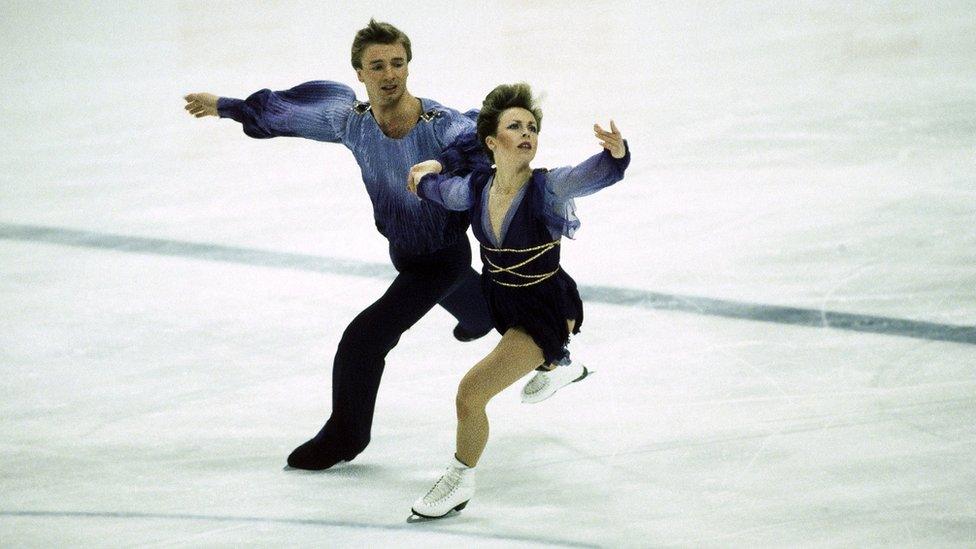
Torvill and Dean performing to the Bolero in the 1984 Sarajevo Winter Olympics
To younger audiences, Torvill and Dean are the judges that get the fewest boos on Dancing on Ice, but in 1984 the pair set the ice on fire (metaphorically speaking) at the Winter Olympics in Sarajevo.
Get a perfect set of sixes and you're guaranteed to be more popular than Jason Gardiner for the rest of your life.
Penny Coomes and Nick Buckland are the British pair out in South Korea doing their best to recreate that Torvill and Dean magic and perhaps secure their spots on the judging panel in the future.
For Dancing On Ice fans, it'll be a good opportunity to compare the likes of Donna Air and Kem Cetinay with full-time athletes who are striving for a gold medal rather than merely avoiding the skate-off.
And if you see any dancers you particularly like the look of... let Dancing On Ice know.
8. When it goes wrong... it goes wrong spectacularly
Winter sports are fast and furious - and flawed. As great as it is when it goes right, the more memorable moments are when it goes wrong. And in the Winter Olympics there's always a proliferation of pratfalls, by virtue of the fact that competitors are airborne or on slippery surfaces 100% of the time.
You can catch up with all the latest Winter Olympics coverage on the BBC Sport website.
- Attribution
- Published6 February 2018
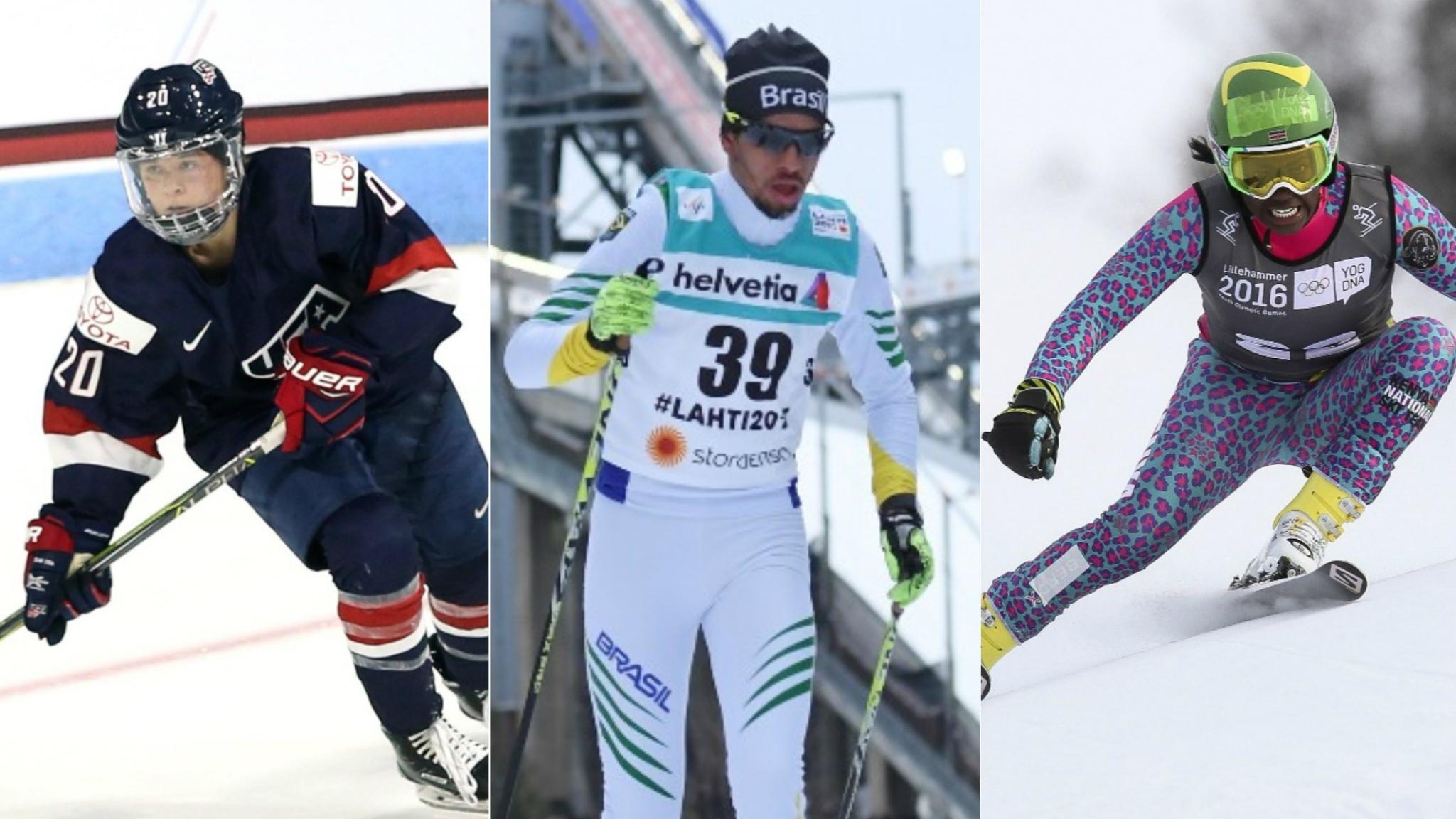
- Attribution
- Published5 February 2018
